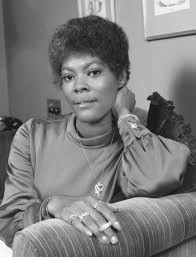REVIEW POTPOURRI: Dionne Warwick
 by Peter Cates
by Peter Cates
Dionne Warwick
Scepter records was the label that released albums by the very gifted singer Dionne Warwick. Back in 1968 the first record I ever bought of her was a 45 that I was able to special order from a vendor who set up a consignment rack at the Cates Country Store. Through him, I acquired LPs by Eydie Gorme, Richard Harris, Sergio Mendes, Glenn Yarborough, etc., all within quarter mile walking distance of home and may have been the most frequent customer of discs benefitting Uncle Ben Cates’s cash register.
A month previously, I had seen the movie Valley of the Dolls, a very compelling depiction of Hollywood and its pill culture, based on the novel by Jacqueline Susann and starring Barbara Parkins, Patty Duke and Sharon Tate (Tate and several others would be murdered in the summer of 1969 by members of the Manson gang during a home invasion when she was hosting a social gathering at the house she lived in with her husband Roman Polanski, he not being home that evening).
The movie ended with the gorgeous theme from Valley of the Dolls composed by Dory and Andre Previn and sung by Miss Warwick which was contained on that above-mentioned Scepter 45, along with side 2’s I Say a Little Prayer, a Hal David/Burt Bacharach megahit.
Scepter started a budget classical label Mace records and, as a teenager, I won a free LP from the company for answering questions about composers correctly. That record had the title Unforgettable Folk Music from Germany, most of that music being quite forgettable.
Mace also released several very good LPs – beautifully played Trios for Clarinet and other instruments by Beethoven and Brahms, a wondrously performed Mozart K. 334 String Divertimento and sets of Brahms, Bruckner and Mahler Symphonies that listed fake names but were still satisfying interpretations.
The label had a musicologist Hope Sheridan who very concisely put her finger on why my personal desert island composer Johannes Brahms (1833-1897) achieved the greatness he did in her jacket notes for a recording of the Piano Quartet in G minor, Opus 25, completed when Brahms was only 28:
“A bounding muscular vigor, melodic exuberance, and headlong brilliance characterize this youthful work. This early quartet, in fact, is filled with all the trademarks which later were to identify the bulk of Brahms’s music. For the 28-year-old composer, it was almost a declaration of self. The quartet begins with declamations of a lovesick young romantic, passes through the catalyst of self-analysis, and ends with a declaration of gypsy abandon – specifically, Brahms own decision to lead the life of a ‘gypsy,’ to renounce the bourgeois fetters of a middle-class existence and to follow his muse wherever it might lead him.”
The recording alluded to above was released, not on Mace which frequently used Sheridan’s writing, but on Vox/Turnabout in 1965 and featured pianist Georges Szolchany with three members of the Hungarian Quartet, a group that taught and performed 14 summers between 1960 and 1974 at our own Colby College. And the interpretation conveyed this music’s vigor, exuberance and brilliance in a stunning manner.
Recordings of the same composer’s 4th Symphony proliferate here at the house. A 1941 78 set of five 12-inch shellac discs feature the wired up, very inspired genius Music Director Serge Koussevitzky (1874-1951) conducting the Boston Symphony which he led for 25 brilliant years from 1924 to 1949. The manner in which he nagged, snapped and screamed at the 105 musicians in rehearsals is rumored to have caused 106 ulcers, one man developing two of them.
But the Victor Red Seal records Koussevitzky left posterity were of a consistently sublime quality. He conducted the Brahms 4th with a combination of thick, yet eloquent sonority from the strings, clear as a bell detail from the woodwinds, powerful brass and percussion while the phrasing sometimes verged on the stodgy yet never went overboard.
A couple of other recommendations are the 1927 Beethoven Pastoral and the 1935 Sibelius Second Symphony.
This conductor mentored Leonard Bernstein, but disapproved of Bernstein writing Broadway musicals.
Responsible journalism is hard work!
It is also expensive!
If you enjoy reading The Town Line and the good news we bring you each week, would you consider a donation to help us continue the work we’re doing?
The Town Line is a 501(c)(3) nonprofit private foundation, and all donations are tax deductible under the Internal Revenue Service code.
To help, please visit our online donation page or mail a check payable to The Town Line, PO Box 89, South China, ME 04358. Your contribution is appreciated!



Leave a Reply
Want to join the discussion?Feel free to contribute!